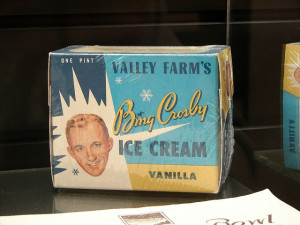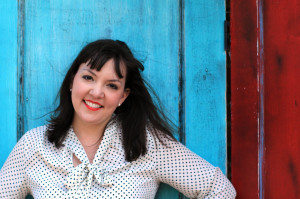The first day I walked into a classroom and the door closed, I was terrified. I was all alone with 14 8th grade students. The room was oddly silent. I was in a very foreign world: an inner-city school, a middle school teacher, and math class. None of those phrases fit me. I am as white and upper-middle class as they come. I do not have the hip persona to connect with a middle schooler; I am more bookish and odd. Also, I barely knew what was going on during my own middle school experience. Relating to my students was like trying to jump across the Grand Canyon. Lastly, I was teaching math even though my passions, majors, and expertise are in literature and history.
When my first class started three years ago, I began by listing the rules of the classroom. I am not a rule follower in just about every area of my life, yet here I was expected to give and enforce obedience to many little rules. I told the students what I expected of them throughout the year:
“Show your work.” My 8th grade math teacher was somewhere rolling his eyes.
“Turn in your homework on time.” Some of my teachers are still missing many homework assignments from me.
“Write neatly.” This was just laughable. As my students quickly found out, I have probably the worst handwriting of any teacher ever.
By the time I was done with the rules and expectations, I was stunned to find myself still enclosed in this room with a bunch of students for whom I was responsible and was supposed to teach. I was even more shocked to find that even though the first day’s lesson was complete, I still had 25 minutes left in class. This was the first of many times where I had to think on my feet while teaching. I opened my text book and taught them Chapter 1 Lesson 1 from our Algebra books. Oddly, they followed along, did not immediately discredit me as a teacher, and learned something.
Teaching has been for me over the last three years an immensely personal and taxing job. I know there are many jobs which are more physically exhausting, but for me as a deeply introverted person, teaching is the most mentally and emotionally draining job I could imagine doing. Every moment with my students requires intensely thoughtful but intuitive responses to the immediate needs of many growing, emotional human beings. The Christian school I work at rightly asks its teachers to be habit trainers and disciple makers as well, but those parts of the job take an incredible amount of emotional energy. Every student I have taught carries a personal story, more often than not, those stories include poverty and broken families. But categorizing them never fully remedies their brokeness or sees them wholly as they are: human beings who desire to know and be known. This manifests itself in a thousand different ways. Sometimes in uncomfortably bold ways, and other times in quiet conversations. Each one teaches me something new, and in their own character and actions, whether good or bad, I find reflections of myself.
These reflections often reveal my own brokenness.
I have learned while teaching that to serve in this world as a Christian means to incarnate Christ in His most down trodden and bruised moments. Before I could really serve though, I found deeper and deeper layers of pride and selfishness. They were peeled back painfully and then trampled on as I thought I was doing a great service, but found all I could really do was pour myself out and hope to give something of value. When I think about the rough sides of serving, there is this deep, dark image that comes to mind from Shushako Endo’s book Silence. In this book about the persecution of Christians and Portuguese missionaries in Japan during the 17th century, this little statue of Christ is rubbed down to almost a non-image by the feet of the apostatizing Christians who instead of facing the suffering of persecution step on the statue to symbolically reject their faith. Their feet trampling Him with their rejection mar His face. Somehow this seems like the place Christ stands most deeply saving the world – He is the one serves us even as we deny Him.
In teaching I have found seemingly never ending tasks required to repair the broken breaches, and then as I work, the breaches within me have leaked my own sinfulness out into the kids’ messes. There have been deep, painful moments of brokenness in teaching which seemed to completely unravel any good I was doing. Sometimes it felt like the effort I was putting forth was getting nowhere and somehow the students or the parents or the world were just trampling down upon the work I was doing. But I think this often is the reality faced in serving this world: we get stomped on and don’t always see the benefit of it until much later. In humility we serve a beyond not our own.
There is this lovely poem/prayer often attributed to Oscar Romero but actually written for his memorial service which goes like this:
A Future Not Our Own
It helps now and then to step back and take a long view.
The Kingdom is not only beyond our efforts,
it is beyond our vision.We accomplish in our lifetime only a fraction
of the magnificent enterprise that is God’s work.
Nothing we do is complete, which is another way of
saying that the kingdom always lies beyond us.
No statement says all that could be said.
No prayer fully expresses our faith. No confession
brings perfection, no pastoral visit brings wholeness.
No program accomplishes the Church’s mission.
No set of goals and objectives include everything.This is what we are about. We plant the seeds that one
day will grow. We water the seeds already planted
knowing that they hold future promise.
We lay foundations that will need further development.
We provide yeast that produces effects
far beyond our capabilities.We cannot do everything, and there is a sense of
liberation in realizing this.
This enables us to do something, and to do it very well.
It may be incomplete, but it is a beginning,
a step along the way, an opportunity for the Lord’s
grace to enter and do the rest.
We may never see the end results, but that is the
difference between the master builder and the worker.We are workers, not master builders, ministers, not
messiahs. We are prophets of a future not our own.
This is my last day teaching in a classroom. I am thankful for the rest to come, but I am even more thankful for the lessons on humility and service which I have received the last three years.

